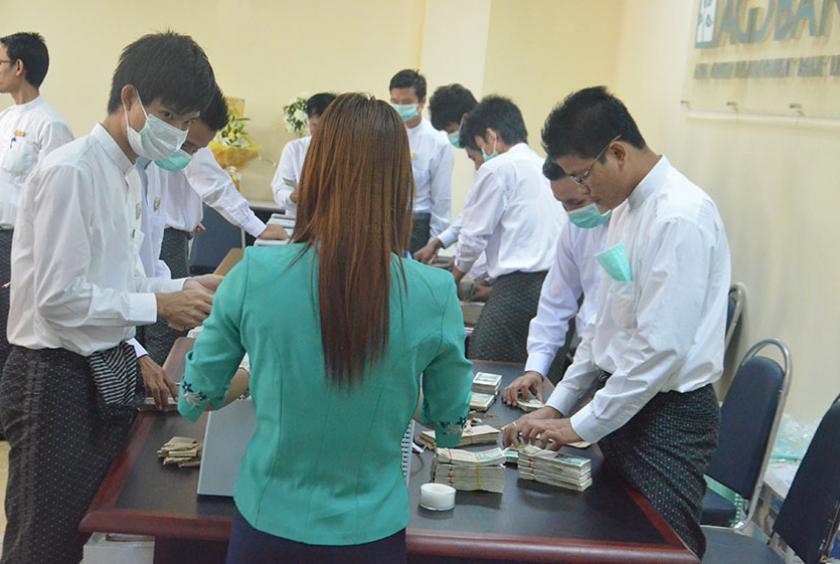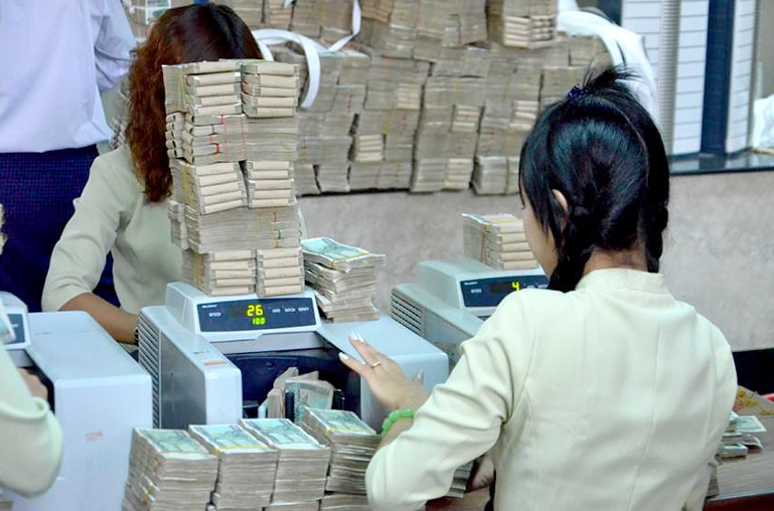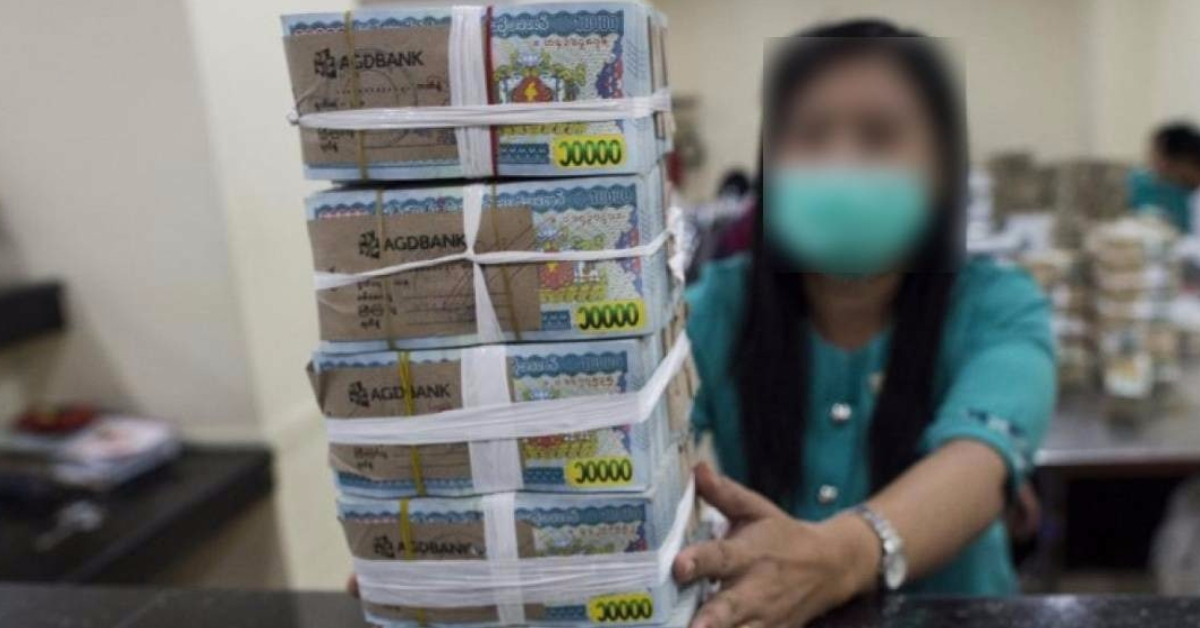CNI News
1 Oct 2022
The public is likely to deposit their money in banks to get interest only after the inflation of the Kyat has stabilized, according to economists and financial experts.
Currently, private banks in Myanmar are increasing their interest rates to attract deposits.
Due to high rates of inflation, Myanmar citizens are investing in the property and gold markets by reducing their cash portfolio and are likely to deposit their money in banks only after the inflation has eased, Secretary U Ohn Myint of the Myanmar Gold Entrepreneurs told the CNI.
He said, “Internationally, when gold prices are to be raised, banks lower interest rates even to 0 percent. People were forced to withdraw their money and buy gold. When interest rates are raised, the public will choose the bank interest, which is guaranteed. As gold prices cannot be predicted exactly, they will choose bank interest. However, banks are still trying to rebuild public trust and it will take time. Another factor is that the public will live on bank interest only when the inflation is stabilized. When the inflation is rising, the public will continue to hold other assets.”

Banking operations.
Recently, the AGD, a private bank in Myanmar, raised its interest rates for fixed periods during the promotion.
Similarly, the CB, the KBZ and the AYA banks raised their interest rates during their promotion periods.
The KBZ has offered 9.1 percent interest rate for at least MMK 10 million 100-day fixed deposits while the AYA raised its interest rates to 9.3 percent for deposits lower than MMK 5 million and 9.6 percent deposits higher than MMK 5 million.
An economist who requested anonymity said banks might be trying to attract money outside the banking system.
He said, “Some businesses do not get as much profit as bank interest rates but they are trying to survive for their workers and for the long-term existence of their businesses. Another factor is that money is circulated outside the banking system although it should have been circulated in the banking system. All transactions must be carried out through banks but the public has stopped using banks and money is circulated outside the banking system. So, banks are giving incentives by raising interest rates to attract deposits by raising their interest rates. Under rules and regulations of the Central Bank, private banks are required to reserve a percentage of deposits. It is possible that reserves at banks are too low to meet the requirements. We cannot say exactly because we cannot study the statistics. This might also be the pressure of the CBM. Moreover, withdrawal is higher than the deposits at banks, forcing them to halt their operations. The main role of the banks is to accept deposits and to lend them to borrowers. When they don’t have deposits, they cannot lend money. They are making profits on the gap between the interest rates between the deposits and lending. They cannot lend money if they don’t receive deposits.”

Banking operations.
Although raising interest rates is beneficial for depositors, it is questionable whether it will have the same effects for banks, said financial market observers and Myanmar economists.
They said banks should raise interest rates on fixed deposits but lower the rates on saving accounts so that money circulating outside the banking system will be redirected to the banking system.
The CBM has instructed private banks to set interest rates at minimum 5 percent for deposits, 10 percent lending rate on secured loans and 14.5 percent lending rate on unsecured loans.




